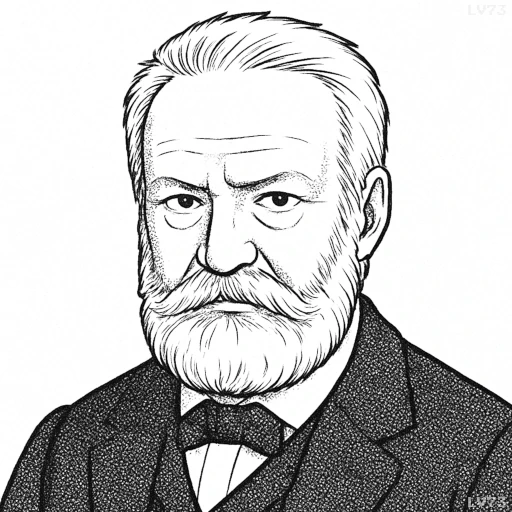“The first symptom of love in a young man is timidity; in a girl boldness.”

- February 26, 1802 – May 22, 1885
- Born in France
- Author, poet, playwright
table of contents
Quote
“The first symptom of love in a young man is timidity; in a girl boldness.”
Explanation
In this quote, Victor Hugo contrasts the initial expressions of love in young men and young women, suggesting that their emotional responses to love are shaped by their societal roles and expectations. For a young man, love is often associated with shyness or timidity, perhaps due to cultural pressures that encourage restraint or uncertainty in expressing emotions. His love is hesitant, filled with insecurity or self-consciousness, reflecting his fear of rejection or the vulnerability that comes with expressing affection.
In contrast, girls are described as exhibiting boldness in the early stages of love, perhaps because society often encourages women to be more expressive or confident in their desires, or because love for a woman can be more openly pursued or affirmed in the context of societal norms. The boldness Hugo refers to could also suggest that girls, in their initial engagement with love, might express their feelings more directly or with confidence.
Hugo’s words reflect not just the romantic experience of love, but the gendered expectations that shape how men and women approach relationships. He suggests that timidity and boldness are natural, yet culturally influenced, responses to the same emotion—love.
In modern terms, this quote can be interpreted as a reflection on how gender roles impact the way we express love. While societal expectations have evolved, Hugo’s observation can still be relevant in considering the different ways males and females are taught to approach vulnerability, affection, and emotional expression. It reminds us that love is not only a deeply personal experience but also shaped by the social frameworks we navigate.
Would you like to share your impressions or related stories about this quote in the comments section?





